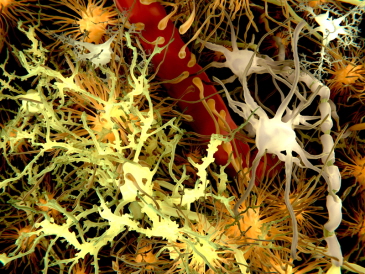EurekAlert!, a major source of science, health and technology news for reporters and the public run by the American Association for the Advancement of Science (AAAS), has just revealed the top 10 news releases which attracted the most traffic on its website in the last 12 months out of the thousands of items submitted.
A research story from the School of Physiology and Pharmacology came in at number two with 177,830 views.
The press release described how researchers had identified a previously unknown mechanism in the body which regulates a hormone that is crucial for motivation, stress responses and control of blood pressure, pain and appetite.
The breakthrough could be used to design drugs to help fight health problems connected with these functions in the future.
Led by Professor Sergey Kasparov and published in Nature Communications, the research showed that lactate - essentially lactic acid - causes cells in the brain to release more noradrenaline, a hormone and neurotransmitter which is fundamental for brain function.
EurekAlert! provides a central place through which universities, medical centres, journals, government agencies, corporations and other organisations engaged in research can bring their news to the media and the public.
Health science dominated the topics described in the 10 most-viewed news releases, with six releases covering research on the brain, sleep, intoxication, HIV and the impact of the environment on health.
A news release about the unintended consequences of disclosing public officials' wages drew nearly 180,000 visits to EurekAlert! in 2014, making it the most popular news release of the year.
More than 25,672 news releases were eligible for inclusion on EurekAlert! in 2014. All news releases were submitted by accredited research institutions and peer-reviewed journals worldwide, and made available to registered science reporters and the public.
